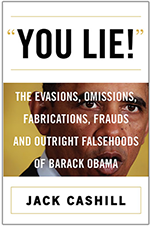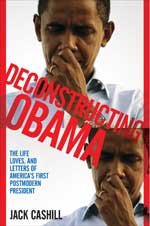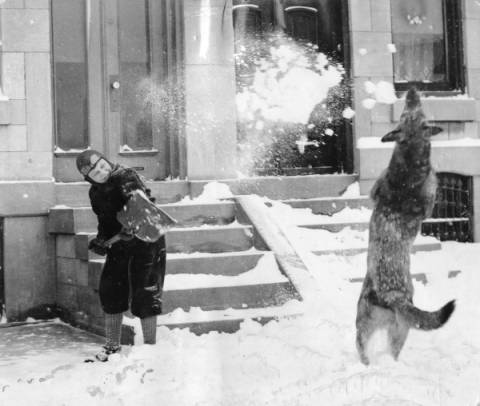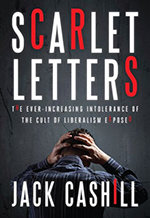Where Are The Snowballs of Yesteryear? Today, Even a Blizzard Can’t Prod Our Kids Outdoors.
HNGN.com - February 8, 2016
Order Jack Cashill's newest book,
Scarlet Letters
___
Get your copy of Jack Cashill's book, "You Lie!"

___
Get your copy of Deconstructing Obama

___
Jack Cashill's book:
Hoodwinked: How Intellectual Hucksters have Hijacked American Culture

Click here for signed first edition
Fond as I am of snow, I ventured east last week for a family reunion, storm warnings be damned. This time, the forecasters did not disappoint. Before the blizzard was through, the pleasant New Jersey suburb I was visiting had been graced by 28 inches of pure white powder.
On that Saturday, with about a foot already on the ground and tons more falling, I took a long walk around the neighborhood. On Sunday, with the sun shining and the snow piled high, I took a longer walk. On Monday, with both school and my flight home cancelled, I took a longer walk still.
During those three walks, I saw a few tykes with parents pushing their sleds, but not a single free-range child at play. Not a one. On Tuesday, with flight and school cancelled once more, I went for a drive through the city streets and saw no one throwing snowballs at passing trucks. In fact, during those four days, I saw not a single kid throw a single snowball at anyone or anything.

Memory plays tricks. Most of us—especially those who grew up during the Depression--recall a childhood in which the cold was colder, the hot hotter, the snow deeper, and the distances farther. But about snow days my memory does not deceive at all. Coming of age just ten miles up the Garden State Parkway in Newark, my buddies and I treasured snow days. We would be up at first light as though it were Christmas and out the door without a word of prodding.

We built forts and igloos. We helped our younger siblings build snowmen. We shoveled sidewalks for cash. At night, we sleighed in the magical Pig Tails Alley—“Pigs” for short--that ran down the middle of our block. One time, I nailed some old shoes onto a pair of 2 x 4’s and tried to ski down the middle of our street.

Once the snow melted just a little, we engaged in endless snowball fights among ourselves and attacked the trucks and busses on the main drags as though they were enemy tanks. We knew enough not to throw at cars. In Newark, the driver might just stop and beat the crap out of you.

Our most epic snowball fight I remember with undiminished delight. We were about eleven or twelve at the time and suffering under the unending tyranny of the 7-11s. This was the teenage gang that manned our street corner and tormented us for recreation.
The gang’s weakness was that its members were hoods. Being hoods, they dressed like hoods, snow or no snow. That meant restrictive leather jackets and pointy Italian shoes. Given that limitation, one little psycho in our crew volunteered to sneak attack the 7-11s and flee up Pigs where we waited in ambush.
Sure enough, the 7-11s chased after him, slipping and sliding all the way. They didn’t have a prayer. We pummeled them from fences and fire escapes and retreated strategically when necessary. They could not catch us. In one of the more glorious moments of my youth I landed a snowball square on the right spectacle of one of the toughs, and it just stuck there. While he stopped to scrape it off, I made my escape. Revenge was a dish best served cold indeed!
I had been aware that children play less on their own outdoors than they once did, 50 percent less in just a generation according to one study of American children. A study of British children found that more than a quarter of them spend thirty minutes or less a week playing outdoors. bit.ly/1hliR3v Until last weekend, though, I had no idea how deep the problem really was. If 28 inches can’t get our kids outdoors, what can?
“Mais où sont les neiges d'antan!” wrote French poet Francois Villon nearly five centuries ago. If “warmists” like Villon worry about a future without snow, we realists worry about a present without snowballs. And kids, unlike weather, we can change.


